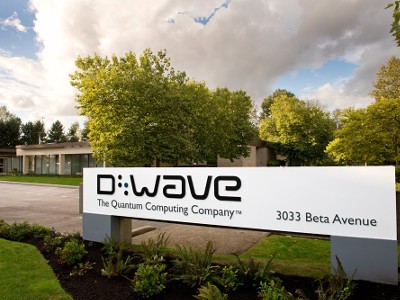D-Wave just open sourced its quantum computing tool

 Open sourced quantum computing is a reality.
Open sourced quantum computing is a reality.
Burnaby, BC’s quantum computer makers, D-Wave, have just released an open-source quantum software tool to the world, in hopes of creating a new community of quantum software developers to help push forward the field of quantum computing.
“Just as a software ecosystem helped to create the immense computing industry that exists today, building a quantum computing industry will require software accessible to the developer community,” says D-Wave International Inc. president Bo Ewald in a statement.
Called Qbsolv, the new tool will allow computer coders and program developers to participate in the process of creating applications for D-Wave’s quantum machines without needing the high expertise in both physics and computing necessary to do quantum programming themselves.
“D-Wave is driving the hardware forward,” says Ewald to Wired magazine. “But we need more smart people thinking about applications, and another set thinking about software tools.”
Quantum computing attempts to harness the properties of quantum mechanics to speed up computer processing, by augmenting the bits (1s and 0s) of traditional computing with “qubits” which have multiple referencing states aside from just 1 and 0. Still in its infancy, quantum computing is projected to have a wide range of applications including the creation of better encryption methods for storing and protecting information. And by simulating quantum systems, quantum computers are expected to allow for much more in-depth study of the sub-atomic world, its properties and interactions between particles.
In particular, working with Qbsolv, programmers will be helping in the solving of optimization problems, another field likely to benefit from quantum computing. Optimization problems are those that deal with calculating the best solution from a range of options and typically, and D-Wave says that already Qbsolv has been put to good use by developers to find better ways of splitting molecules and faster solutions to sequencing alignment problems in the field of genomics.
“D-Wave is building a set of software tools that will allow developers to use their subject-matter expertise to build tools and applications that are relevant to their business or mission,” says Ewald. “By making our tools open source, we expand the community of people working to solve meaningful problems using quantum computers.”
In 2011, D-Wave announced the creation of the D-Wave One, described as “the world’s first commercially available quantum computer,” and in 2015, the company revealed that its D-Wave 2x was being used by NASA’s Quantum Artificial Intelligence Lab in Mountainview, California. The company has seen its quantum machines in use by Google, Lockheed Martin and the Los Alamos National Laboratory.
Over its 16-year history, D-Wave has been able to raise more than $200 million in funding, including from investors such as Amazon founder Jeff Bezos, Goldman Sachs and the United States Central Intelligence Agency’s venture capital arm, In-Q-Tel.
Last month, D-Wave co-founder Haig Farris of Bowen Island, BC, was honoured for his achievements by being named an officer of the Order of Canada.

